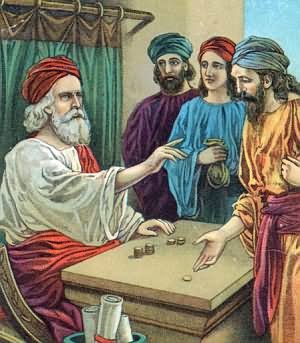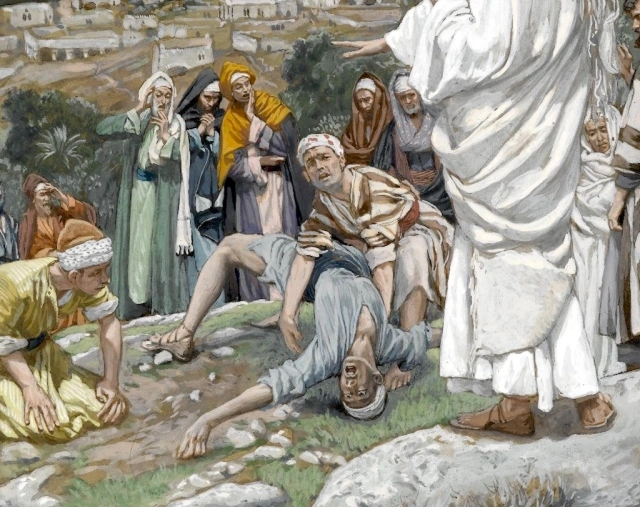Lectio Divina means “divine reading” in Latin. It’s a meditative way of reading the Bible in which we let go of our own agendas/goals and allow ourselves to what God is trying to say to us. Unlike Bible study, Lectio Divina focuses on one short section of Scripture – one passage, one verse, or even one word. It is also encouraged by the Catechism of the Catholic Church as a way to meditate! (CCC 2708).
The origins of Lectio Divina
Lectio Divina is a Latin phrase meaning Divine Reading. It dates all the way back to the 3rd Century. Over the years, it was developed by some of the early Church Fathers, Saints of the Church, and religious communities such as: Origen, St. Ambrose, St. Augustine, St. Bernard of Clairvaux, Saint Benedict, St. John of the Cross, St. Teresa of Avila, the Desert Fathers who formed the first monasteries in the Eastern Church, the Carthusians, the Cistercians, the Benedictines, the Carmelites. It has been introduced to the Protestants by John Calvin.
As is often said about Scripture, this type of prayer is itself “Ever Ancient, Ever New.”
This is what St. Thérèse of Lisieux has to say about the Lecto Divina:
“Above all it’s the Gospels that occupy my mind when I’m at prayer; my poor soul has so many needs, and yet this is the one thing needful. I’m always finding fresh lights there, hidden and enthralling meanings.”
Why use this type of prayer
Lectio Divina encourages us to become receptive to the divine Word in order to form us into the image of Christ. It is a “way of listening to what the Lord wishes to tell us in his Word and of letting ourselves be transformed by the Spirit.”
– Pope Francis in Evangelii Gaudium (152)
Preparation before we use Lectio Divina:
It’s important to keep in mind the 5 P’s:
- Prepare: Know your passage ahead of time and meditate on it throughout the day.
- Place: Go to your prayer place, room or chair. 90% of prayer is just being there.
- Posture: We pray using our bodies. Try one of the four postures: standing, sitting, kneeling, or prostrating.
- Presence: Invoke the Holy Spirit into this time of prayer. Invite God the Father to hold you, the Son to be the Good Shepherd to you, and the Holy Spirit to be Christ in you.
- Passage: Hold the Bible in your lap and realize: “The Word of God is alive.” The Father will speak to you!
How to practice Lectio Divina
Select a Scripture passage: Before starting your prayer, select a passage from Scripture to use for your Lectio Divina. It can be from the Old or New Testament, but it shouldn’t be too long.
Lectio (reading) is like looking at the buffet meal that is placed before us, and then deciding which part to taste first, which looks pleasing to the eye, what you want to save for last, and it’s all about that first bite.
Meditatio (meditation) is chewing on the food, tasting it, deciding whether you like it or not or if you want more of it or want to try another part of the dish. This is often related to “chewing”. We should keep in mind that at times we eat our food so fast and really don’t taste it, and we could run into the same danger with Scripture. We really need to meditate and to take it slow.
We should always remember we are reading with God and pondering with God. We are not alone where it is a mere dark and frustrating experience.
Oratio (pray) means speech, discourse, or dialogue. It is kind of like when we share a meal with anyone, especially with God, conversation tends to flow naturally. During this step you not only savour the food but you savor the company and your heart naturally wants to say something and hear something in response. This could be various spontaneous prayers or a more formal vocal prayer that you write out or say to God. Thanksgiving prayers, Adoration prayers, Praise, Sorrow, Repentance, Resolution, Intercession.
Contemplatio (contemplation): There is nothing better after having a good meal than “resting” in the company you are with. Think about an Italian dinner where nobody gets up from the table right away. Or a Thanksgiving meal. You have tasted the food. You drank the wine. You have talked, laughed, and loved. Now you just spend that last moment in silence, completely content, taking it all in, savoring it, enjoying it, just “being” there with the people that you love, with the God that you love.
Actio (Action): What is the Lord saying to me? What sin is He asking me to repent of? What prayer of Intercession He wants me to make? Is He just making me sit in restful waters to revive me? Is there something He wants me to repent of? Is there someone He wants me to forgive? Take action on whatever the Lord has spoken during this time.
Journalise your thoughts.



